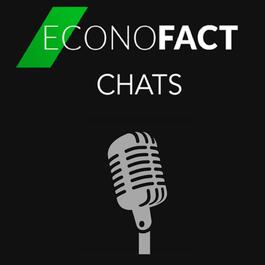
Show episodes
The poverty rate among children is a crucial indicator of child well-being. Yet, the overall well-being of a child depends on more than just economic security. Education, health, and family and community, all play an important role. Leslie Boissiere of the Annie E. Casey Foundation joins EconoFact Chats to discuss the
United States colleges and universities currently enrol about 900,000 international students, representing 5% of all students – although the percentage of foreign students varies widely across institutions. Many colleges and universities would be hurt by policies that limit the number of foreign students. The detriment
The Undersecretary of the Treasury for International Affairs plays a key role in shaping how the United States engages with the world financial system. Jay Shambaugh, Undersecretary of the Treasury for International Affairs in the Biden administration joins EconoFact Chats to discuss his time in office, focusing on neg
EconoFact Chats regularly hosts a panel discussion with top economic journalists. Since the panel last met in March, the House passed the 'big, beautiful budget bill,' Moody’s has downgraded U.S. debt, universities face stiff funding challenges, and tariff policy continues to be volatile. Binyamin Appelbaum (The New Yo
Since the mid-1990s, the U.S. social safety net has been geared towards policies that encourage and reward work. While steady jobs and decent wages are the surest routes out of poverty, evidence shows that safety-net work requirements rarely translate into higher employment among beneficiaries of the Supplemental Nutri
This week, EconoFact Chats features an abridged version of the EconoFact Ask Me Anything Webinar held on April 22nd, featuring Maurice Obstfeld, former Chief Economist at the IMF, and a member of the Council of Economic Advisors. Maury answers questions on the role of international trade in the US economy, tariffs and





